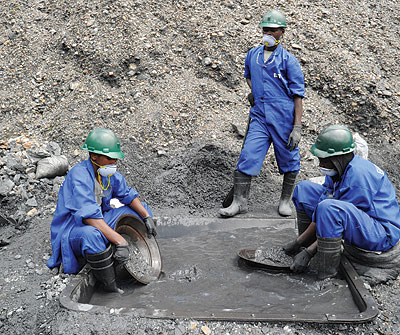Foreign direct investment (FDI) inflows into Rwanda increased by 6.3 per cent last year, making the country one of the top 10 nations favoured by investors on the continent.


Foreign direct investment (FDI) inflows into Rwanda increased by 6.3 per cent last year, making the country one of the top 10 nations favoured by investors on the continent.
According to a new report, ‘EY’s Attractiveness Survey Africa 2014’, Rwanda ranked ninth in attracting FDI inflows in sub-Saharan Africa.
Ghana attracted the most FDI projects at 50.5 per cent followed by Kenya at 40.1 per cent. Uganda registered a 20.1 per cent increase in FDIs while Tanzania recorded a 22.8 per cent rise.
The financial services, telecom industry, mining and oil and gas sectors attracted the highest number of FDIs, the report indicated.
Rwanda targets to raise $1.1b from FDIs from $1b last year.
The survey conducted under the theme "Executing growth” noted that Rwanda’s robust economic growth over the last decade and its efforts to improve business environment has continued to attract more investors into the country.
The government has been reviewing Rwanda’s the investment code to attract more FIDs into the country.
Over all, the number of FDI projects in Rwanda, Mozambique, Tanzania and Uganda were up by more than 20 per cent in 2013, the report indicated.
Allan Gichuhi, the EY (formerly Ernst&Young) Rwanda partner, said Africa’s perceived attractiveness relative to other regions has improved dramatically over the past few years, moving from third last position in 2011 to become the second-most attractive investment destination behind America during 2013.
"The growth was fueled by the need for improved regional value chains and strengthening regional integration. The landmark decision by the Comesa, Sadc and the East African Community (EAC) bloc to establish a single free trade area was also a positive development,” Gichuhi said during the release of the report in Kigali yesterday.
He said cross-border FDI in Africa was set to accelerate further, as local firms seek new markets.
Capital investment into Africa grew by 12.9 per cent, with a higher average project size of $70.1m in 2013, from $60.1m in 2012.
Overall, the US and the UK remained the top two sources of investment into Africa, while the number of FDI projects from Asian countries, particularly India, is on a rise, according to the report.
The EAC bloc grew at a compound average growth rate of 23.4 per cent, the second highest rate for any regional bloc on the continent.
The report noted that EAC’s large market of the over 180 million people and the recent oil and gas discoveries are of immense appeal to investors.


